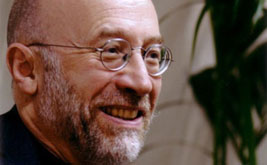Nuclear Arms and the Man
Cincinnati
Jonathan Schell, in "Reaching Zero" [April 19], describes very well the theoretical illogic of the arms race, but there are more practical, immediate reasons to oppose proliferation. During the past sixty years the United States has spent more than $7 trillion on nuclear weapons production, much of it without taxpayer or Congressional oversight. We have accumulated dangerous nuclear waste, which we don't know what to do with and which will be a threat for thousands of years. Those who worked at production plants and those who lived nearby have experienced high cancer rates. Any government that continues to build nuclear weapons, knowing their danger, is in effect using them against its own people and the planet itself.
CAROL RAINEY
Mary Jane Got a New Set of Laws
Federal Prison Camp, Jesup, Ga.
How legalization will affect small pot growers depends on the types of regulation states choose [Alexander Cockburn, "Marijuana, Boom and Bust," April 19]. For instance, under the medical marijuana law in Michigan a grower is limited to growing for himself and five patients—seventy-two plants (twelve per person). Clearly, legalization will take the big money out of small operations. Unlike the booze industry, however, I don't see the centralization. Even with much of the alcohol industry centralized, there remains a market for small wineries and beer microbrewers. Small growers who are good will always have a niche.
Besides the ballot measure in California, legalization will be on the ballot in Oregon and Washington, if all works out. It's interesting to note that when Montanans legalized medical marijuana in 2004, George W. Bush received around 60 percent of their vote; but marijuana outpolled him. Flash-forward four years. Obama took Michigan with around 60 percent of the vote. Medical marijuana outpolled him as well! When are the politicians going to crunch the numbers on this one?
HAROLD BARANOFF
Desert Hot Springs, Calif.
I disagree that legalization in California will drive down prices. I think demand will skyrocket. People who already buy for medical reasons will probably retain their current level of consumption. But many who ingest pharmaceuticals will test-drive cannabis and switch. People who sampled pot recreationally but turned to alcohol because of legality issues will get high instead of drunk. Pent-up demand plus first-in-the-market status will make California a destination for college educations, vacations and retirement. Who's worried? Probably the Mexican drug cartels. Who should worry? The Bureau of Alcohol, Tobacco and Firearms; Homeland Security; and the Postal Service. The tax revenue will relieve much of the state's $25 billion budget deficit. And guess what Californians will be sending out for Christmas!
EARL NISSEN
Alexandria, Va.
Marijuana is worse for the lungs, heart and brain than cigarettes. It is teeming with bacteria, viruses and fungi. Pure heroin—which the marijuana apostles demonize while portraying pot as a safe "soft" drug—just causes constipation and dizziness.
MARK SCOTT OLLER
Hilberg & Arendt: It's Complicated
Clinton, N.Y.
Nathaniel Popper's thorough, nuanced, intellectually brilliant and morally serious journalistic investigation of the complicated personal and historiographical relationship between Raul Hilberg's The Destruction of the European Jews and Hannah Arendt's Eichmann in Jerusalem reminds me why I've been a loyal Nation reader for the past four decades and will (I hope) remain so for decades to come ["A Conscious Pariah," April 19].
MAURICE ISSERMAN
Jerusalem
Nathaniel Popper's essay on Raul Hilberg and Hannah Arendt is one of the most balanced accounts of these two complex personalities I have read. Given their common perceptions—or the genealogy of these perceptions from Hilberg to Arendt—and the fact that both were vilified in Jewish circles for their emphasis on the bureaucratic machinery of Nazism (for years you could hardly mention the name of Hilberg or Arendt at Yad Vashem), it is truly a shame that they were not allies.
One minor correction: it is not true that Hilberg's 1974 course on Holocaust history was the first taught in the United States; I studied the subject with Erich Goldhagen (Daniel Goldhagen's father) at Brandeis in the late 1960s. Hilberg's book was, as I recall, the major resource for that course.
SIDRA DeKOVEN EZRAHI
Concord, Mass.
Nathaniel Popper did a remarkable job restoring to Raul Hilberg scholarly credit attributed by history to Hannah Arendt. However, in the course of doing so, Popper gave credit to Hilberg for being the first to teach a college-level course on the Holocaust. He was not. In 1972, two years before Hilberg first did so, Hampshire College offered a course titled "Thinking About the Unthinkable: An Encounter With the Holocaust," designed in that first year by a group of students and facilitated by anthropologist Leonard Glick. In 1973, Glick created his own syllabus and taught the course for many years thereafter. Hampshire was honored, beginning in 1972, to welcome Hilberg as a guest lecturer for the course.
SIGMUND J. ROOS, chair
Board of trustees, Hampshire College
Tulsa, Okla.
As an undergraduate at the University of Vermont in the late 1970s I encountered Hilberg, by then a revered—and feared—faculty member. He was a stern man, distant, but a profoundly gifted lecturer and teacher. Years later, I was his host during a visit to the university where I was then a faculty member. I'd not seen him for decades; he didn't remember me (nor should he have). I found him courtly, friendly, funny, even in his distant way. The lecture was a powerful performance, but during the question-and-answer segment, he erupted when asked to discuss Holocaust survivors. "I don't want to talk about survivors," he shouted. "I want to talk about those who were murdered!" I think that statement reveals much about who he was.
BRIAN HOSMER
I Remember Mario
San Diego
I was in Mario Savio's Free Speech Movement/Children's Crusade and bachelor's degree program at UC Berkeley [Scott Saul, "A Body on the Gears," March 29]. It took me eighteen years to graduate because I told Mario I wouldn't take my degree until he got his (he called me when he graduated from San Francisco State). I spoke at his Manhattan memorial service. Did you know he starred in Brigadoon as a senior in high school? He was known as Bob then, as your reviewer notes. Once, a classmate wanted to shoot out a street light outside his window in Queens. Bob wouldn't advise him one way or the other. After the friend did shoot it out, Bob asked, "Did you clean up the glass?"
RICHARD THOMPSON
A Late, Great Muckraker
Blairstown, N.J.
As the son and daughter-in-law of Fred Cook, we found Richard Lingeman's "Redbaited by the FBI" [Jan. 11/18] most interesting. The FBI must have been very frustrated trying to find anything on Dad, as he was incorruptible. Dad wrote books on many controversial subjects—The Plot Against the Patient (healthcare), The Warfare State (military-industrial complex), The Great Energy Scam (oil industry) and The Secret Rulers (organized crime) among them. We have great memories of a wonderful man. Thank you for the article.
FRED and CAROL COOK
Throw Another Nation on the Barbie!
Sofia, Bulgaria
I am an Australian and an English teacher in Bulgaria. I just want to thank you for your articles. I use them to teach my students, and they greatly enjoy them.
LEWIS ALBANIS Read More
Our Readers





